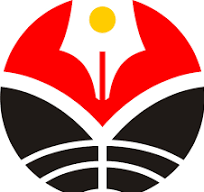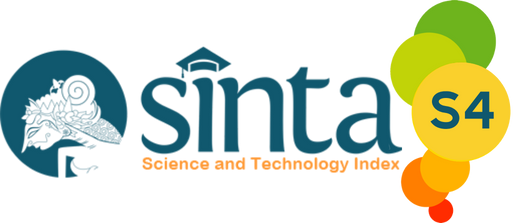Focus and Scope
Focus
The focus of JIPTEK is to promote and advance the understanding and development of technical and vocational education, emphasising the integration of theoretical knowledge and practical skills. It aims to improve teaching and learning methodologies, curriculum development, instructional design, assessment strategies, and the overall quality of technical and vocational education.
Scope
The journal covers a wide range of topics within the field of technical and vocational education, including but not limited to:
- Curriculum development and instructional design in technical and vocational education.
- Teaching and learning strategies for technical and vocational subjects.
- Assessment and evaluation methods in technical and vocational education.
- Integration of technology and digital tools in technical and vocational education.
- Professional development and teacher training in technical and vocational education.
- Industry partnerships and collaboration in technical and vocational education.
- Work-based learning and apprenticeship programs in technical and vocational education.
- Career guidance and counseling in technical and vocational education.
- Policies and reforms in technical and vocational education.
- Quality assurance and accreditation in technical and vocational education.
Section Policies
Research Article
Research within this section including those adopting all of the research method approaches.
Review
Literature review of all strategies fall under this policy,
Conceptual or Theoretical Report
Theoretical ideas will be fall under this section.
Editorial Note
Editors' notes either at the practical or conceptual level.
Peer Review Process
All submitted manuscripts have not been published before or submitted to other journals. All received manuscripts undergo double blind peer reviews. For the first process, the editors assess the manuscript based on its suitability to the journal's focus and scope. Manuscripts will be verified using similarity checker software such as Turnitin. The manuscripts are forwarded to reviewers after passing the 30% similarity level. At least two reviewers will review the manuscript. The author must revise the manuscript based on the reviewers' feedback and send it back to the editor two weeks later. Finally, the manuscripts will be sent to copy editors and published on the JIPTEK : Jurnal Ilmiah Pendidikan Teknik dan Kejuruan website.
Publication Frequency
This journal is published twice a year in January and July.
Open Access Policy
This journal provides immediate open access to its content on the principle that making research freely available to the public supports a greater global exchange of knowledge.
Archiving
This journal utilizes the LOCKSS system to create a distributed archiving system among participating libraries and permits those libraries to create permanent archives of the journal for purposes of preservation and restoration. More...
Publication Ethics and Malpractice Statement
JIPTEK : Jurnal Ilmiah Pendidikan Teknik dan Kejuruan, is a blind peer reviewed journal, published biannually by (Eks) Jurusan Pendidikan Teknik dan Kejuruan, Fakultas Keguruan dan Ilmu Pendidikan, Universitas Sebelas Maret Surakarta. It is available online as open access sources as well as in print. This statement clarifies ethical behaviour of all parties involved in the act of publishing an article in this journal, including the author, the editor-in-chief, the Editorial Board, the reviewer, and the publisher.
Ethical Guideline for Journal Publication
The publication of an article in JIPTEK : Jurnal Ilmiah Pendidikan Teknik dan Kejuruan is an essential building block in the development of a coherent and respected network of knowledge. It is a direct reflection of the quality of the work of the authors and the institutions that support them. Double blind peer reviewed articles support and embody the scientific methods. It is therefore important to agree upon standards of expected ethical behavior for all parties involved in the act of publishing: the author, the editor, the reviewer, the publisher, and the society. As the publisher of JIPTEK : Jurnal Ilmiah Pendidikan Teknik dan Kejuruan, Publisher takes its duties of guardianship over all stages of publishing seriously and it recognizes its ethical and other responsibilities. (Eks) Jurusan Pendidikan Teknik dan Kejuruan, Fakultas Keguruan dan Ilmu Pendidikan, Universitas Sebelas Maret Surakarta committed to ensuring that advertising, reprint or other commercial revenue has no impact or influence on editorial decisions.
Publication decisions
The editor of the JIPTEK : Jurnal Ilmiah Pendidikan Teknik dan Kejuruan is responsible for deciding which of the articles submitted to the journal should be published. The validation of the work in question and its importance to researchers and readers must always drive such decisions. The editors may be guided by the policies of the journal's editorial board and constrained by such legal requirements as shall then be in force regarding libel, copyright infringement and plagiarism. The editors may confer with other editors or reviewers in making this decision.
Fair play
An editor at any time evaluate manuscripts for their intellectual content without regard to race, gender, sexual orientation, religious belief, ethnic origin, citizenship, or political philosophy of the authors.
Confidentiality
The editor and any editorial staff must not disclose any information about a submitted manuscript to anyone other than the corresponding author, reviewers, potential reviewers, other editorial advisers, and the publisher, as appropriate.
Disclosure and conflicts of interest
Unpublished materials disclosed in a submitted manuscript must not be used in an editor's own research without the express written consent of the author.
Duties of Reviewers
Contribution to Editorial Decisions
Peer review assists the editor in making editorial decisions and through the editorial communications with the author may also assist the author in improving the paper.
Promptness
Any selected referee who feels unqualified to review the research reported in a manuscript or knows that its prompt review will be impossible should notify the editor and excuse himself from the review process.
Confidentiality
Any manuscripts received for review must be treated as confidential documents. They must not be shown to or discussed with others except as authorized by the editor.
Standards of Objectivity
Reviews should be conducted objectively. Personal criticism of the author is inappropriate. Referees should express their views clearly with supporting arguments.
Acknowledgement of Sources
Reviewers should identify relevant published work that has not been cited by the authors. Any statement that an observation, derivation, or argument had been previously reported should be accompanied by the relevant citation. A reviewer should also call to the editor's attention any substantial similarity or overlap between the manuscript under consideration and any other published paper of which they have personal knowledge.
Disclosure and Conflict of Interest
Privileged information or ideas obtained through peer review must be kept confidential and not used for personal advantage. Reviewers should not consider manuscripts in which they have conflicts of interest resulting from competitive, collaborative, or other relationships or connections with any of the authors, companies, or institutions connected to the papers.
Duties of Authors
Reporting standards
Authors of reports of original research should present an accurate account of the work performed as well as an objective discussion of its significance. Underlying data should be represented accurately in the paper. A paper should contain sufficient detail and references to permit others to replicate the work. Fraudulent or knowingly inaccurate statements constitute unethical behaviour and are unacceptable.
Confidentiality and Anonymity of Participants
It is the author's responsibility to conceal respondents' identity and safeguarding their confidentiality and anonymity. Publishing respondents' real names or organizations is considered unethical; therefore, disguising their identities is mandatory.
Originality and Plagiarism
The authors should ensure that they have written entirely original works, and if the authors have used the work and/or words of others that this has been appropriately cited or quoted.
Multiple, Redundant or Concurrent Publication
An author should not in general publish manuscripts describing essentially the same research in more than one journal or primary publication. Submitting the same manuscript to more than one journal concurrently constitutes unethical publishing behaviour and is unacceptable.
Acknowledgement of Sources
Proper acknowledgment of the work of others must always be given. Authors should cite publications that have been influential in determining the nature of the reported work.
Authorship of the Paper
Authorship should be limited to those who have made a significant contribution to the conception, design, execution, or interpretation of the reported study. All those who have made significant contributions should be listed as co-authors. Where there are others who have participated in certain substantive aspects of the research project, they should be acknowledged or listed as contributors. The corresponding author should ensure that all appropriate co-authors and no inappropriate co-authors are included on the paper, and that all co-authors have seen and approved the final version of the paper and have agreed to its submission for publication.
Disclosure and Conflicts of Interest
All authors should disclose in their manuscript any financial or other substantive conflict of interest that might be construed to influence the results or interpretation of their manuscript. All sources of financial support for the project should be disclosed.
Fundamental errors in published works
When an author discovers a significant error or inaccuracy in his/her own published work, it is the author’s obligation to promptly notify the journal editor or publisher and cooperate with the editor to retract or correct the paper.Retraction Policy
The papers published in JIPTEK : Jurnal Ilmiah Pendidikan Teknik dan Kejuruan will be considered to retract in the publication if:
1. They have clear evidence that the findings are unreliable, either as a result of major error (eg, miscalculation or experimental error), or as a result of fabrication (eg, of data) or falsification (eg, image manipulation)
2. It constitutes plagiarism
3. The findings have previously been published elsewhere without proper attribution to previous sources or disclosure to the editor, permission to republish, or justification (ie, cases of redundant publication)
4. It contains material or data without authorisation for use
5. Copyright has been infringed or there is some other serious legal issue (eg, libel, privacy)
6. It reports unethical research
7. It has been published solely on the basis of a compromised or manipulated peer review process
8. The author(s) failed to disclose a major competing interest (a.k.a. conflict of interest) that, in the view of the editor, would have unduly affected interpretations of the work or recommendations by editors and peer reviewers.
The mechanism of retraction follows the Retraction Guidelines of Committee on Publication Ethics (COPE) which can be accessed at: https://doi.org/10.24318/cope.2019.1.4
Plagiarism Policy
Authors should submit only original work that is not plagiarized and not has been published or being considered elsewhere. Turnitin or other software will be used by the editorial team to check for similarities between a submitted manuscript with existing literature.
All work in the manuscript should be free of any plagiarism, falsification, fabrications, or omission of significant material. The Editorial Board will ensure that every published article will not exceed the 30% similarity Score. Plagiarism screening will be conducted by JIPTEK : Jurnal Ilmiah Pendidikan Teknik dan Kejuruan Editorial Board using Turnitin








